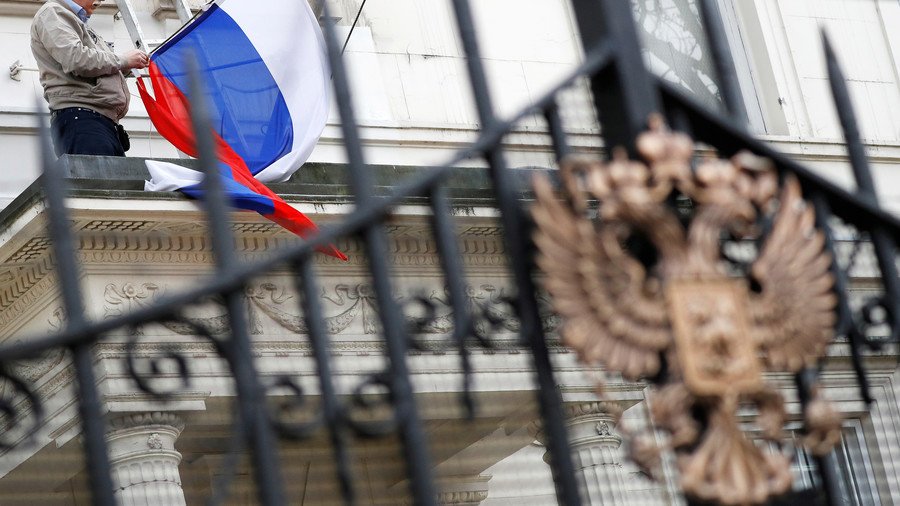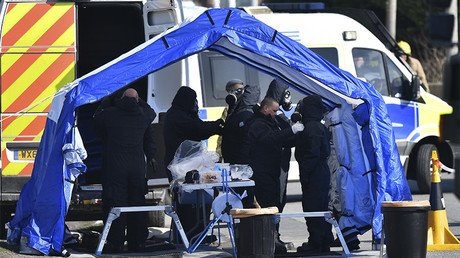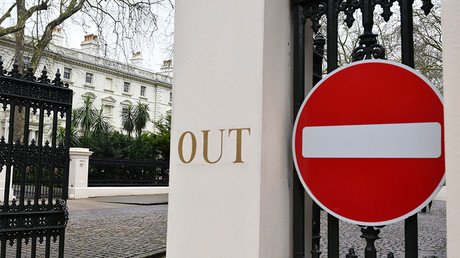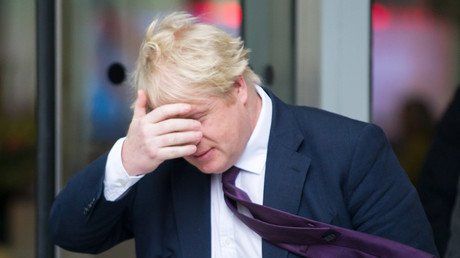Shadows of the Fortress of the Seven Towers

Expulsion of diplomats won’t yield tangible results.
For centuries, the Ottoman Empire had a peculiar tradition. When the Sublime Porte’s relations with a particular country went south and a new war was inevitable, the ambassador of the enemy state was thrown in the Ambassador’s Tower of Yedikule Fortress (“Fortress of the Seven Towers”), dubbed the Bastille of Istanbul. The diplomatic envoy was to stay there for months or even years, until the war was over and the countries signed a peace agreement.
Prisoners enjoyed various degrees of comfort, based on their personal relationship with the Sultan and his inner circle. Istanbul didn’t gain anything with this move, since the isolation wouldn’t allow the ambassador to help with peace negotiations. But there was much joy and satisfaction at the Topkapi Palace in Istanbul over the embarrassment of the Ottoman dynasty’s ungodly foe.
Times have changed, we are more civil now, and ambassadors are no longer imprisoned by foreign powers. But the mass expulsion of Russian diplomats by Western countries is in line with one of the ugliest traditions instituted by the Sublime Porte government. Dozens of diplomats become collateral damage in a much bigger game where they don’t really play any part. Moreover, Russian diplomats’ presence in a foreign country is considered a privilege granted to Moscow, as opposed to a normal situation. And this privilege can be taken away at any moment.
Most people would agree that when you are facing an international crisis and the stakes are much higher, it is necessary to keep the existing diplomatic channels or even expand them. Every diplomat, regardless of their rank or position, is a potential line of communication, a source of information, someone who can help you understand the other side – their thoughts, fears, intentions, and expectations. Niccolò Machiavelli’s “keep your friends close and your enemies closer” line is just as relevant today as it was 500 years ago.
And how can you see enemies in diplomats, even if they represent a not-so-friendly state? These people have worked at the embassy or consulate for a number of years – they know the language, understand the host country’s culture and traditions, and have friends there. So a diplomat usually presents a positive image of this country back home, becoming its sympathizer, if not lobbyist. Let's recall who served as the UK and US ambassadors in Russia over the last decades: Roderick Lane and Anthony Brenton, John Beyrle and John Tefft – none of these people could be described as incorrigible Russophobes. All of them, with very few exceptions, have taken very moderate and constructive positions with regards to Russia. Likewise, I don’t think that our long-serving diplomats in London and Washington, regardless of their rank, are willing to take on the role of reckless hawks and engage in anti-Western rhetoric.
The usual argument in favor of expelling foreign diplomats is based on the allegation that these people are, in fact, not really diplomats; that they have been carrying out intelligence operations in the host country, undermining its national security. However, once you take a closer look at this line of reasoning, it becomes highly dubious. First, if you have evidence or at least a reasonable suspicion that there are spies in your country, working under the guise of diplomats, and that their efforts are a threat to your national security, why wait for the latest political crisis before making the decision to expel them? Second, you don’t have to have the observational skills of Gruppenführer Müller, played by Leonid Bronevoy in the classic Soviet spy drama Seventeen Moments of Spring, in order to realize a simple fact: any foreign agent who’s had his cover blown becomes a valuable asset for the host nation’s counterintelligence, which means that expelling him from the country would be, putting it mildly, rather short-sighted.
They may argue: “Let’s not over-dramatize the situation. There are many other channels of communication between Russia and the West besides embassies and consulates: from international summits and meetings between foreign ministers to various contacts between the military and the special services to track II diplomacy, involving unofficial dialogue between experts.” That is certainly true. The expulsion of Russian diplomats from the US does not eliminate the opportunities for Russia-US cooperation in southwest Syria or make us give up on the future of the New START Treaty. However, it is the embassies, the consulates and the trade missions that put meat on the bones of international relations, that enable the development of ties between societies in general: from small-scale student exchanges to multibillion-dollar business deals. If that weren’t so, why would the pragmatic and tight-fisted Americans be constructing a massive new embassy in London worth over a billion dollars?
There is no doubt that expelling diplomats is a simple and flashy measure that publicly signals disapproval without jeopardizing the country’s core interests. This decision to expel diplomats does not need to go through the parliament and usually does not become a subject of the domestic political debate. On top of that, many falsely believe that there is always a possibility to reconsider or scrap this decision altogether if and when the relations start coming back to normal. And finally, expelling diplomats is a long-standing ritual that can be traced back to the Cold War era when it was practiced for decades, and is now an integral component of the international relations game.
The Cold War decades have proven that this move never yields any tangible positive results. It simply can’t, because diplomatic service is a technical tool of foreign affairs. When you are experiencing problems with your hard drive, pounding the keyboard is not going to solve the issue.
By Andrey Kortunov, Director General of the Russian International Affairs Council
This article was originally published by Nezavisimaya newspaper.
The statements, views and opinions expressed in this column are solely those of the author and do not necessarily represent those of RT.
















